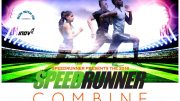Maybe the mountains had grown. Maybe the Earth’s gravitational pull was stronger than before. Or perhaps there was something wrong with my legs. My muscles felt not just weak but empty.
Richard Askwith is obsessed with hills and mountains — real and metaphorical. (The word “Obsession” even appears in the subtitle of his 2004 book “Feet in the Clouds,” about trail running.)
But the Englishman’s fourth tome, “The Race Against Time,” is stunning for his climb through the clouds to seek the wisdom of true-life gurus — elite masters runners, trainers and scientists.
Instead of asking the Secret of Life, he seeks to recapture his running chops at age 62 — or reduce “my own feebleness.”
That’s not just a book-organizing device. He sets a goal of running the 10K road race at the 2022 World Masters Athletics Championships in Tampere, Finland, wondering if he has a right to compete. He writes: “I had no more business racing in a world championships as a sixty-two-year-old than I would have had competing in the Olympics as a twenty-two-year-old.” (Silly wabbit. Nobody told you WMA worlds are essentially well-run all-comers meets whose only requirements are wearing your national kit and affording air far and lodging?)
No matter.
The first and last chapters are as sublime as any I’ve read since inhaling Albert Camus at Kansas in the early 1970s. Richard uses “The Myth of Sisyphus” to make his points. Like Sisyphus, Richard the runner keeps pushing the boulder up the slope, only to see it roll back. Shower and repeat.
I thought back to all the times I had powered up this path in the past. The idea of finding it difficult offended me, so I blocked the discomfort from my mind. Onward and upward. Tiredness is for tourists.
Over the course of 353 easy-reading pages, Richard drives me crazy with envy — speaking to giants of our sport including Charles Allie, Angela Copson, the late Ida Keeling and Yoko Nakano (who reveals: “I want to break all the (W85) world records … from 800m to marathon)”, topped by Polish M105 sprint god Stanislaw Kowalski shortly before his death at 111 in April 2022.
(He also quotes some SoCal muckraker named Ken Stone, talking about the miracle of getting to the starting line. He interviewed me by Skype in July 2020.)
He also taps brilliant coaches (and thinkers) including our friend Pete Magill: “Step one, suggests Pete, is to water the whole garden. In other words, try to get some speed back.”
Our efforts cannot make the mountain tamer or smaller; yet sometimes we find that, in the despair and defiance of the struggle, we ourselves are changed, and become somehow bigger. … And occasionally, too, for a miraculous moment or two, we may even shake off the bonds of gravity and age and, very briefly, feel ourselves ascending.
Askwith is an interesting name. According to House of Names, its origins are with the Anglo-Saxons and the village of Askwith — from an Old English word askvior or “dweller near the ash wood.” I’d modernize it to mean: Ask with insight. Or courage.
“Race Against Time” thus is a world-class distillation of modern training wisdom — paths that Magill, Earl Fee and others have wonderfully trod. (Everyone has heard of HIIT — high intensity interval training. Richard puts some meat on the bones.)
But he also adds voices such as Nigel Crompton of Runners Hub: “People come to me with injuries that won’t go away. And they’ve had it looked at — let’s say it’s the knee — and from then on, that’s the only thing anyone looks at. … But I won’t do that. I do a whole-body assessment.”
Yet Richard still struggles with his mental approach, bouncing between Young Richard and Old Richard. (He even puts in print a term I thought only I used: “personal worst.”)
So I pulled myself together. After all, how humiliating is it, really, to finish a distant last in a race?
Richard properly notes that masters athletes have embraced the Olympic “founding ideal” more than most Olympians — that the important thing is not the winning but the taking part. But Richard still needs to get over his supposed mediocrity: “My time was about 5 minutes quicker than I had at one point feared, although I’m too embarrassed to share it here,” he says of a 10K track race at the Veterans Athletic Club Championships. (He clocked 46:23.66 as an M60, averaging 7 1/2-minute miles.)
That’s fine in my book (which I have yet to write).
So I made a resolution. … I will be shameless. I will turn up where and when I feel like it, and run as well as I can, until I can run no more. … And if people don’t like it, they can look away.
Attaboy, Richard!
I share life experiences with him — including pride in youthful achievements and dismay at middle-aged newspaper layoffs. But as a fellow writer, I need to remind him of a larger context. You can’t measure self-worth based on track times.
Truth is I’m most envious of his lyrical style, the greatest dive into a geezer runner’s mind since Dr. George Sheehan. Of the 6,000-plus athletes at Finland worlds, I doubt any could express themselves on paper more magnificently than Richard. He leaves me in the dust, no doubt.
Richard’s book will move you — literally and spiritually.
I might not amount to much as a runner, but I had, I thought, finally understood the most beautiful secret of masters athletics. The glory isn’t in winning. It’s in facing up to inevitability of ultimate defeat. And then doing it anyway.
Contribute to support independent track and field journalism:





Be the first to comment on "Richard Askwith reveals secrets of masters in ‘The Race Against Time’: Why, how we still run"